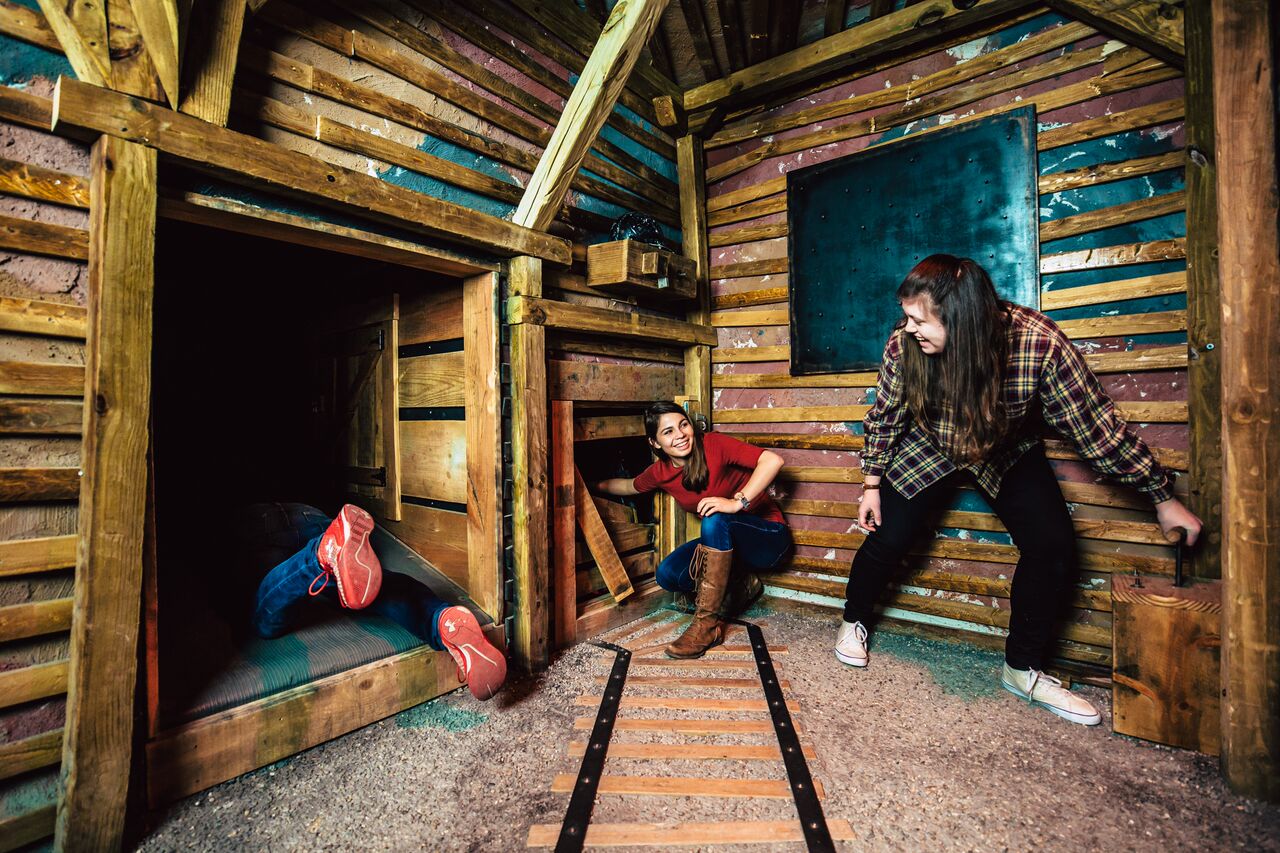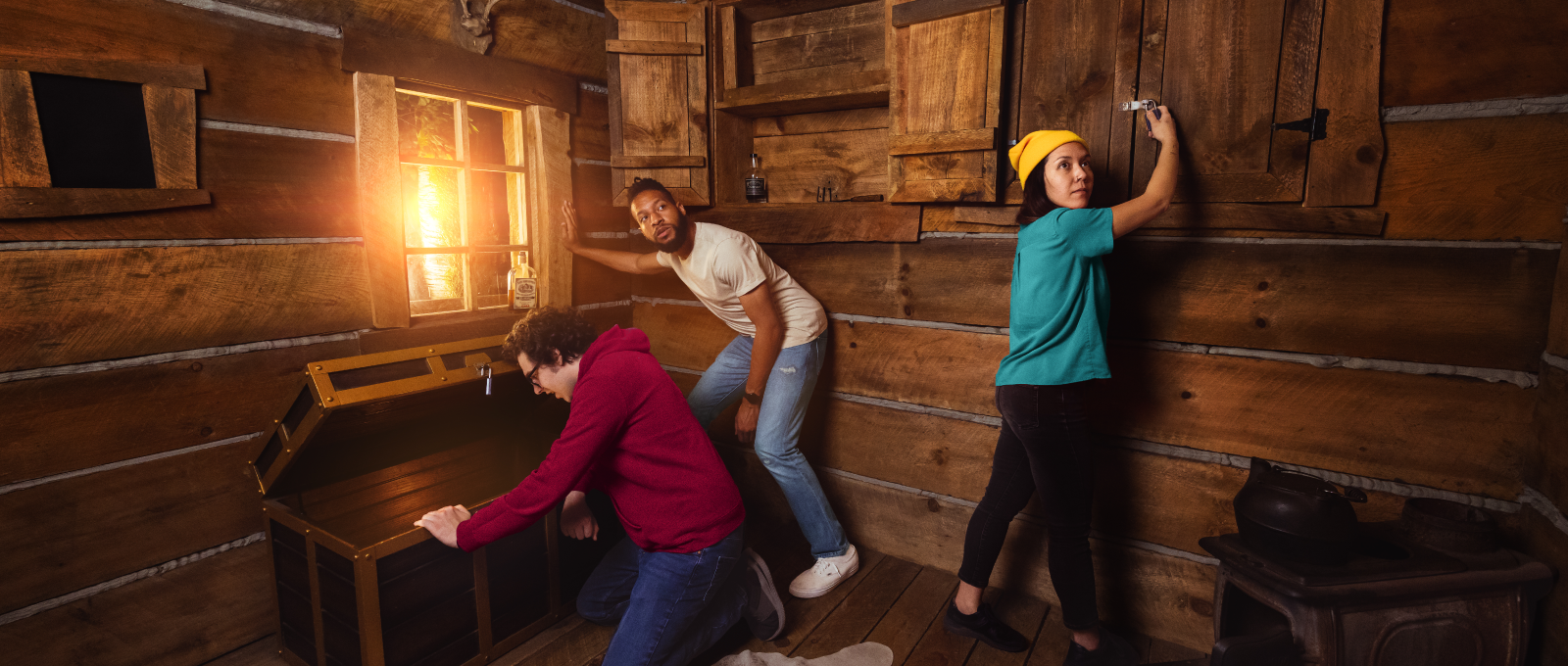Group Methods: How to Work together Successfully in an Escape Area
Navigating the complexities of a getaway area requires greater than mere excitement; it calls for a well-coordinated technique grounded in clear interaction, calculated duty jobs, and skilled time management. Groups have to actively listen per member's understandings, assign functions that straighten with individual toughness, and maintain regular check-ins to make certain emphasis and protect against redundancy. By fostering an atmosphere that values communication and flexibility, teams can dramatically increase their effectiveness and success prices. The subtleties of these methods can transform the experience, however just how specifically can they be applied to take full advantage of the possibility for success?
Establish Clear Interaction

To facilitate clear interaction, it is necessary to assign a main point of contact for details dissemination. This duty involves summarizing searchings for and suggested strategies to ensure every person continues to be on the very same page. Furthermore, adopting a methodical technique to conversations can prevent chaotic exchanges. Brief, concentrated updates from each group participant can keep the group informed without overwhelming them with information - best escape room.

Assign Roles Tactically
While clear interaction sets the foundation for reliable synergy, appointing duties strategically guarantees that each staff member's staminas are utilized efficiently. In an escape space situation, the time-sensitive and complicated nature of challenges demands a well-organized strategy to task delegation. By determining and leveraging individual expertises, teams can optimize their problem-solving abilities and boost general performance.
Somebody with a keen eye for detail may stand out in locating surprise things, while a sensible thinker can be much better suited to resolving challenges. This function typically needs strong organizational and interpersonal skills.
Second, make certain that duties are flexible and versatile. As brand-new obstacles arise, the group has to have the ability to pivot, reapportioning jobs as required. This versatility assists preserve energy and prevents traffic jams that can occur as a result of rigid function projects.
Ultimately, a strategic technique to duty assignment not just optimizes the strengths of each employee yet also cultivates a cohesive setting, driving the team towards an effective escape.
Make Use Of Diverse Skills
Recognizing and using the diverse skills within your team can substantially raise your efficiency in an escape space. Each staff member brings special toughness to the table, and efficiently leveraging these capabilities can expedite analytical and improve general efficiency. For instance, a group participant with solid logical abilities may stand out at figuring out complicated codes or patterns, while an additional with eager empirical capacities might quickly find concealed hints that others might ignore.
Effective communication is essential to utilizing these diverse skills. Motivate staff member to voice their understandings and concepts promptly, ensuring that all prospective services are considered. This inclusive approach fosters a vibrant environment where creative thinking and essential thinking can grow. Additionally, appointing jobs that line up with each participant's strengths can protect against bottlenecks and make sure that progression is continuous.
Additionally, diversity in skills usually equates to variety in assuming designs, which is vital in a retreat space setting. While some difficulties may need rational reasoning and precision, others might take advantage of imaginative and association of ideas. By recognizing and leveraging this variety, groups can attend to a wider series of challenges much more efficiently, thus enhancing their possibilities of an effective retreat.
Manage Time Successfully

First, allocate Going Here preliminary minutes for a fast survey of the room. Recognize noticeable puzzles and separate tasks based upon group members' toughness, making certain that nobody is still. Establish internal time checkpoints to review progression regularly; for example, goal to have half the puzzles addressed by the mid-point of the video game. This practice can aid keep the team concentrated and avoid time from escaping undetected.
Furthermore, stay clear of one-track mind. If a challenge is taking as well long, revolve group members or move on to an additional challenge, returning later with fresh point of views. Interaction is paramount-- keep everybody upgraded on solved puzzles and staying tasks to prevent repetitive efforts.
Finally, utilize any type of hints or ideas moderately however strategically - best escape room. Recognizing when to request for assistance can save valuable time. By adhering to these time monitoring concepts, teams can considerably enhance their chances of a successful and delightful retreat space experience
Debrief and Mirror
Reflection is a vital aspect of team growth and enhancement in the context of escape spaces. As soon as the challenge is completed, whether successfully or not, it is critical for the team to participate in a structured debriefing session. This process allows employee to assess their performance, redirected here determine strengths, and determine areas for improvement.
Start the debrief by discussing what went well. Highlight details circumstances of efficient interaction, analytical, and collaboration. Recognizing these favorable habits enhances them and encourages their repeating in future obstacles.
Review minutes of confusion, miscommunication, or inadequate strategies. Urge an open and useful dialogue where team participants can share their point of views without fear of criticism.
Conclusion
In conclusion, effective collaboration in a retreat space is based upon clear interaction, tactical duty assignments, the efficient use of diverse skills, and skillful time management. By producing a natural and adaptive group setting, the likelihood of effectively addressing challenges and attaining the purpose of escaping the room is substantially boosted.